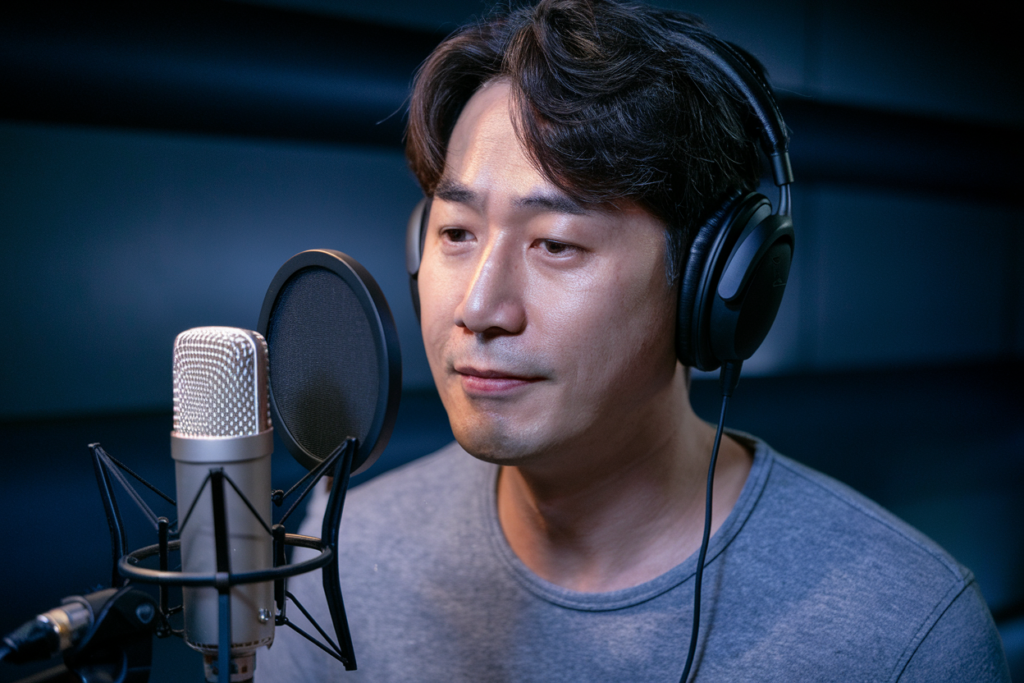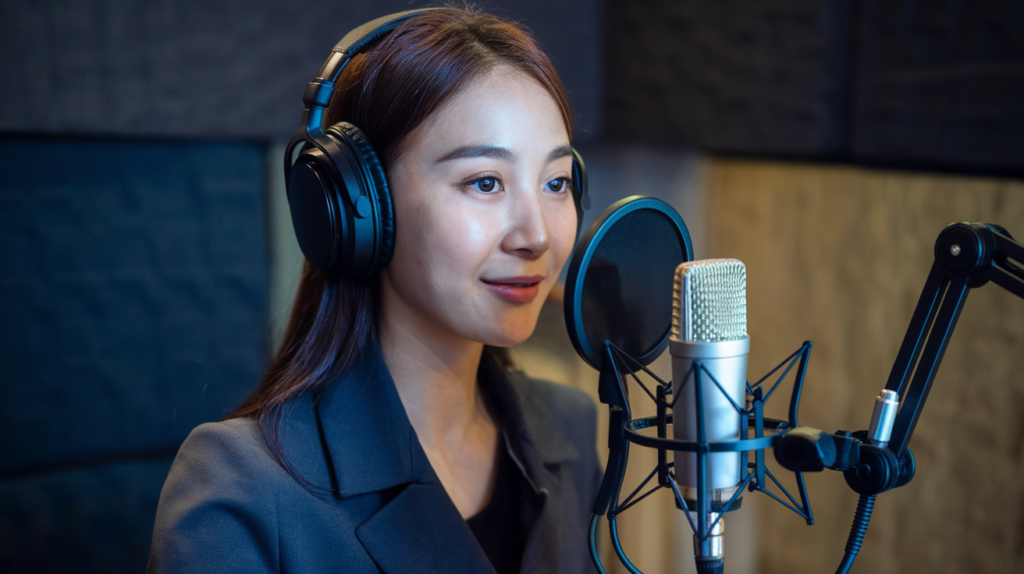Key Takeaways
- Distinct Rhythm and Intonation: Seoul Korean features a unique rhythm and intonation that sets it apart from other dialects, reflecting the city’s vibrant culture.
- Influence of Urban Life: The fast-paced lifestyle in Seoul contributes to quicker speech patterns, creating an energetic conversational atmosphere filled with slang and colloquialisms.
- Pronunciation Variations: Notable differences in pronunciation include vowel elongation and consonant aspiration, which can challenge non-native speakers but also enrich the dialect’s character.
- Cultural Influences: Popular media such as K-pop and K-dramas introduce new expressions and accents that resonate with younger generations, continually shaping everyday language use.
- Historical Context: The evolution of Seoul Korean is influenced by historical migrations and regional dialects, resulting in a blend that maintains local characteristics while absorbing external elements.
- Media’s Role: Social media trends amplify contemporary language changes, promoting the rapid adoption of new slang and expressions among younger audiences.
Ever wondered why Seoul Korean sounds so different from other dialects? You’re not alone. Many language enthusiasts and travelers find themselves captivated by the unique rhythm and intonation of this vibrant city’s speech.
Why Seoul Korean Sounds Different
Seoul Korean stands out due to its distinctive rhythm and intonation. This variation often surprises language learners and fascinates travelers. The dynamic nature of the dialect reflects the city’s vibrant culture and rapid modernization.
One reason for this uniqueness lies in the influence of urban life. In bustling areas, you’ll notice a faster pace in speech patterns, creating a lively conversational atmosphere. Additionally, slang and colloquialisms frequently emerge from youth culture, further shaping how the language sounds.
Another factor contributing to the distinctiveness is pronunciation. Seoul Korean tends to emphasize certain syllables differently compared to other dialects. For instance, vowel elongation or consonant aspiration occurs more prominently in casual conversations. These phonetic traits can pose challenges for those unfamiliar with them.
The influence of media also plays a significant role. Popular music, television dramas, and movies originating from Seoul introduce various expressions and accents that appeal to younger generations. This exposure not only alters everyday speech but also makes learning about the dialect exciting.
Ultimately, if you dive into listening to authentic conversations or media from Seoul, you’ll catch these subtleties more easily. Engaging with native speakers can enhance your understanding of this captivating dialect even further.
Linguistic Features of Seoul Korean
Seoul Korean features distinct linguistic traits that contribute to its unique sound. These characteristics are shaped by various factors, including pronunciation variations and a rich vocabulary.
Pronunciation Variations
Pronunciation in Seoul Korean differs significantly from other dialects. You’ll notice that syllable emphasis varies, with certain vowels elongated and consonants aspirated more prominently. This results in a lively rhythm that’s both engaging and challenging for learners. For instance, the way words are enunciated can change based on context or social setting, affecting clarity and tone. Additionally, the influence of urban life fosters faster speech rates; this pace adds an energetic quality to conversations but might make it difficult for non-native speakers to keep up.
Unique Vocabulary
Unique vocabulary also plays a crucial role in the distinctiveness of Seoul Korean. The language incorporates many slang terms and colloquial expressions influenced by youth culture and media trends. Terms popularized through K-pop songs or television dramas often enter everyday conversation, reflecting current interests and societal changes. For example, you might hear phrases that resonate with younger audiences but seem foreign to older generations. This evolving lexicon not only enriches communication but also helps establish identity among speakers.
Understanding these linguistic features enhances your appreciation of Seoul Korean’s charm while facilitating deeper connections with native speakers. Exploring these aspects opens up new avenues for engagement with this dynamic dialect.
Regional Influences on Seoul Korean
Seoul Korean reflects diverse regional influences that shape its distinct sound. Understanding these influences enhances comprehension of this vibrant dialect.
Historical Context
Historical factors significantly impact the evolution of Seoul Korean. The capital’s status as a political and cultural hub attracted people from various provinces, leading to a blend of dialects. This mix resulted in unique phonetic pronunciations and vocabulary choices. Moreover, historical events such as wars and migrations introduced new linguistic elements, enriching the dialect further. As Seoul transformed into a metropolis, its language adapted, absorbing influences from neighboring regions while maintaining distinctive local characteristics.
Cultural Factors
Cultural dynamics also play a crucial role in shaping Seoul Korean. Urban life fosters rapid communication styles often filled with slang and colloquial expressions that resonate with younger generations. Popular culture—especially K-pop music and television dramas—influences everyday conversations by introducing new phrases and accents that become part of the dialect’s fabric. Additionally, social interactions in bustling environments like markets or cafes encourage lively exchanges characterized by unique rhythms and intonations. These cultural nuances contribute to the overall charm of Seoul Korean, making it appealing for both locals and visitors alike.
Understanding these regional influences provides insight into why Seoul Korean sounds different from other dialects, allowing you to appreciate its rich tapestry woven through history and culture.
The Impact of Media on Seoul Korean
Media significantly shapes the sound and usage of Seoul Korean. Through music, television, and social platforms, new expressions and accents emerge that resonate with younger generations.
K-Dramas and Music
K-dramas and K-pop play a key role in popularizing specific phrases and pronunciations. Characters in dramas often use slang that reflects urban life, making dialogue relatable for viewers. This exposure not only entertains but also teaches language nuances through authentic interactions. For instance, catchy songs frequently include colloquialisms that quickly become part of everyday speech for fans. As you listen to these tracks or watch your favorite shows, you might notice how they introduce new vocabulary or shift pronunciation patterns among listeners.
Social Media Trends
Social media amplifies the influence of contemporary language in Seoul. Platforms like Instagram and TikTok showcase trends where users adopt unique expressions or alter traditional words to fit modern contexts. Short videos often highlight humorous takes on daily conversations, encouraging users to mimic those styles in real life. These trends foster a dynamic linguistic environment; as slang evolves rapidly online, so does its integration into spoken Korean. By engaging with this content, you can grasp how digital interactions shape the way Seoul Korean sounds today—creating an evolving tapestry of communication that’s both vibrant and accessible.
Understanding these media influences reveals why Seoul Korean has distinct characteristics compared to other dialects. They reflect not just cultural shifts but also a community’s identity molded by ongoing interactions with various forms of entertainment.
Conclusion
Embracing the nuances of Seoul Korean opens a window into a vibrant cultural landscape. Its distinctive rhythm and lively intonation not only reflect urban life but also showcase the dynamic interplay of youth culture and media influences. This dialect serves as a living testament to Korea’s evolving identity, shaped by historical events and contemporary trends.
As you explore Seoul Korean, you’ll uncover the rich tapestry woven from diverse regional sounds and expressions. Engaging with native speakers allows you to experience firsthand how this unique dialect enriches conversations. Understanding these elements deepens your appreciation for both the language itself and the culture it represents.
Frequently Asked Questions
What makes the Seoul Korean dialect unique?
The Seoul Korean dialect is distinct due to its unique rhythm, intonation, and pronunciation variations. Influenced by urban life, it features a faster pace of speech and incorporates slang from youth culture. This lively conversational style sets it apart from other Korean dialects.
How does media influence the Seoul Korean dialect?
Media plays a significant role in shaping the Seoul Korean dialect. Popular music, K-dramas, and social platforms introduce new phrases and pronunciations that resonate with younger generations. These influences help learners understand language nuances through relatable dialogue in authentic contexts.
Why is learning the Seoul Korean dialect challenging?
Learning the Seoul Korean dialect can be challenging due to specific phonetic traits like vowel elongation and consonant aspiration. Additionally, rapid speech patterns combined with slang expressions make it difficult for non-native speakers to grasp conversational nuances fully.
How does youth culture affect the Seoul Korean dialect?
Youth culture significantly impacts the Seoul Korean dialect by introducing contemporary slang and colloquial expressions. This dynamic creates a vibrant linguistic environment that reflects trends among younger generations, making communication more relatable yet complex for learners.
What historical factors have influenced the evolution of the Seoul Korean dialect?
Historical events such as wars and migrations have shaped the evolution of the Seoul Korean dialect. As a political and cultural hub, regional influences blend various provincial accents into its sound, enriching vocabulary choices over time while reflecting cultural dynamics in urban life.







